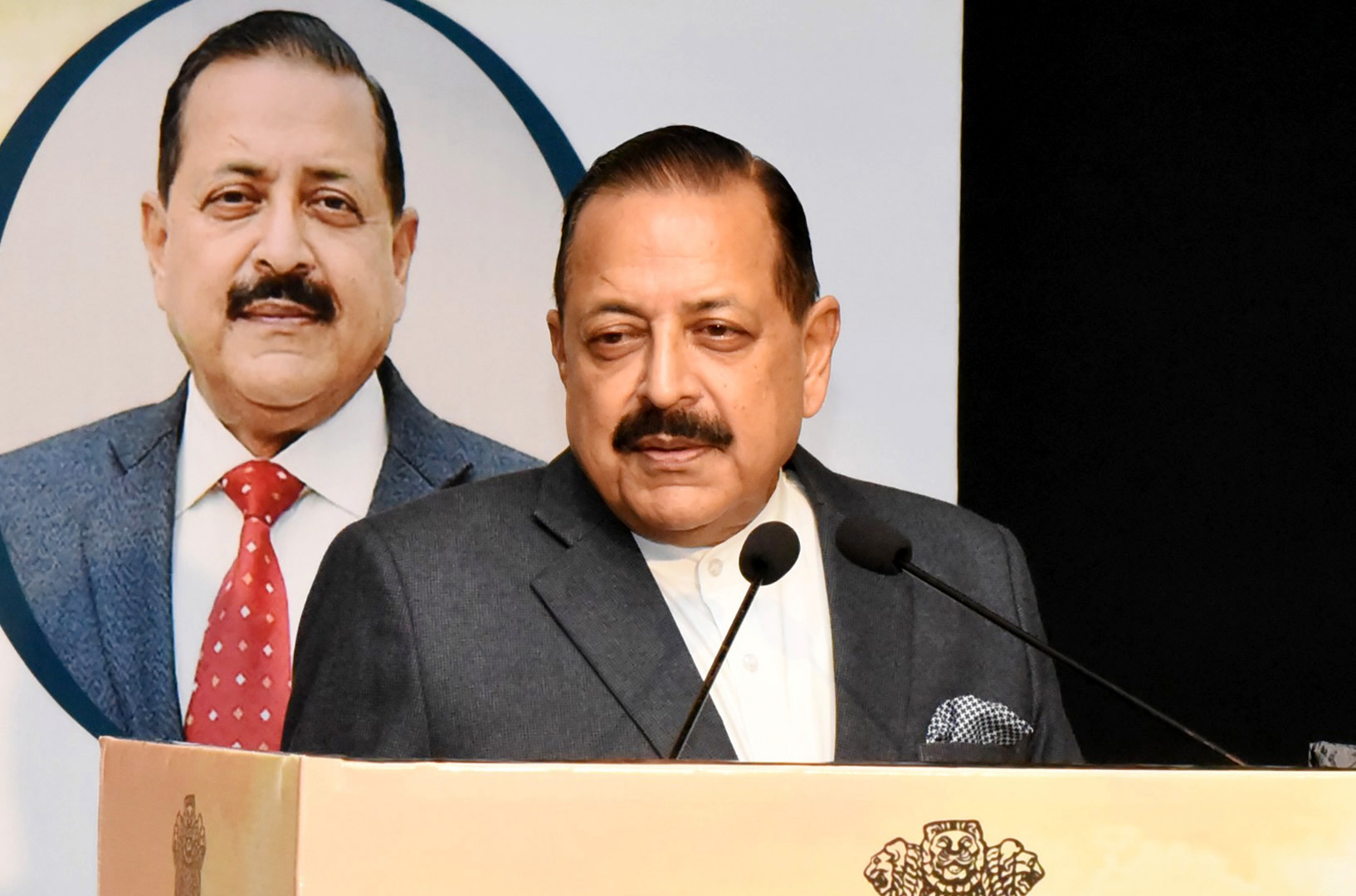NEW DELHI, Jan 5: During the 40th Foundation Day celebration of the Department of Scientific and Industrial Research at Dr. Ambedkar International Centre, Union Minister Dr. Jitendra Singh, the Minister of State (Independent Charge) for Science and Technology, Earth Sciences, and other portfolios, announced the launch of the first indigenously developed paracetamol. This medicine, commonly used to relieve pain and reduce fever, was created by the Council of Scientific and Industrial Research (CSIR), which operates under the Ministry of Science & Technology, Government of India.
Click Here To Join Daily Excelsior on WhatsApp And Get Latest News
The Minister detailed that CSIR has innovated a domestic technology for the production of paracetamol, aiming to reduce India’s reliance on imported raw materials. Karnataka-based Satya Deeptha Pharmaceuticals Ltd is set to utilize this breakthrough to produce affordable paracetamol locally. Currently, India depends on several countries for the key ingredients used in paracetamol production. This initiative by CSIR not only mitigates this dependency but also aligns with Prime Minister Narendra Modi’s vision of “Atmanirbhar Bharat” (self-reliant India).
Dr. Jitendra Singh reflected on the history of DSIR and its contributions over the past decade, emphasizing the importance of collaboration with industry partners to enhance innovation and promote technological advancement. He also recalled the establishment of CSIR, a long-standing organization dedicated to India’s scientific and industrial development through research.
As part of the Foundation Day celebrations, the DSIR marked the transfer of 16 additional technologies: 9 from CSIR-CSIO Chennai and 6 from CSIR-CEERI, Pilani, in connection with the campaign “100 days 100 technologies.” LAGHU UDYOG BHARATI, a national organization of MSMEs established in 1994, also played a role in these transfers, with a total of 57 CSIR technologies allocated so far under this initiative.
The technologies transferred by CSIO focus on the design and development of scientific and industrial instruments featuring IoT capabilities, while those transferred by CEERI address healthcare and social applications. Additionally, a Memorandum of Understanding (MoU) was signed between CSIO and ELCIA, Bengaluru, to foster collaborative efforts in sensor technology development.
Dr. Jitendra Singh described the occasion as a moment of celebration for NRDC and CEL, highlighting the challenge of converting significant work into successful enterprises due to marketing obstacles. He praised the strides made in India’s technological capabilities over the last decade, crediting the visionary leadership of Prime Minister Modi for championing technological advancement for the nation’s benefit.
Dr. Singh noted that prior to 2014, while India had scientific talent, the emphasis on innovation and entrepreneurship was lacking. Following 2014, significant collaboration emerged between governmental and non-governmental sectors, evidenced by successes in the space sector, such as startups launching satellites from Sriharikota.
He commended ISRO for the recent SPADEX (Space Docking Exercise) mission, which places India among the few nations with such capabilities. Reflecting on accomplishments in 2024 and the government’s third term, commonly referred to as MODI.3.0, he pointed to a series of indigenous developments, including the first domestically developed antibiotic, Nafithromycin, for treating both typical and atypical drug-resistant bacteria, as well as the successful trial of gene therapy for blood disorder hemophilia.
Highlighting CSIR’s achievements, Dr. Jitendra Singh acknowledged pivotal projects such as the 108-petal lotus development, hydrogen bus initiatives, biofuels, and the Aroma Mission, which gained national recognition in the Republic Day Tableau and was praised by the Prime Minister. He reiterated the importance of a synergistic approach across all government arms and advocated for a comprehensive strategy in science and technology.
Dr. Singh also referenced the “One Week One Theme” (OWOT) and “One Week One Lab” (OWOL) initiatives from CSIR, which he conceived. He underscored the government’s commitment to women-led development, ensuring support for women scientists and startups. He concluded by emphasizing the need to seek out non-governmental funding for innovation, highlighting the Anusandhan NRF initiative that aims to source 60% of its funds from non-government sectors. He assured the scientific community that 2025 will be a transformative year for science and technology with numerous ventures on the horizon.
Dr. N. Kalaiselvi, Secretary of DSIR and DG of CSIR, remarked on the signing of the Guwahati Science Declaration by members aspiring to position India as a global economic hub by 2047. Prof. A.K. Sood, Principal Scientific Advisor to the Government of India, emphasized the need for the country to transition into a product-based economy, emphasizing that a substantial portion of growth should stem from technology-related products. He cited the USA as a model where 9% of its economic growth is tied to the tech sector and urged a shift from a service-based to a product-based economy rooted in India’s own designs. Senior scientists from DSIR and industry leaders, including MSME representatives, were present in significant numbers during the celebration.


Leave a Reply